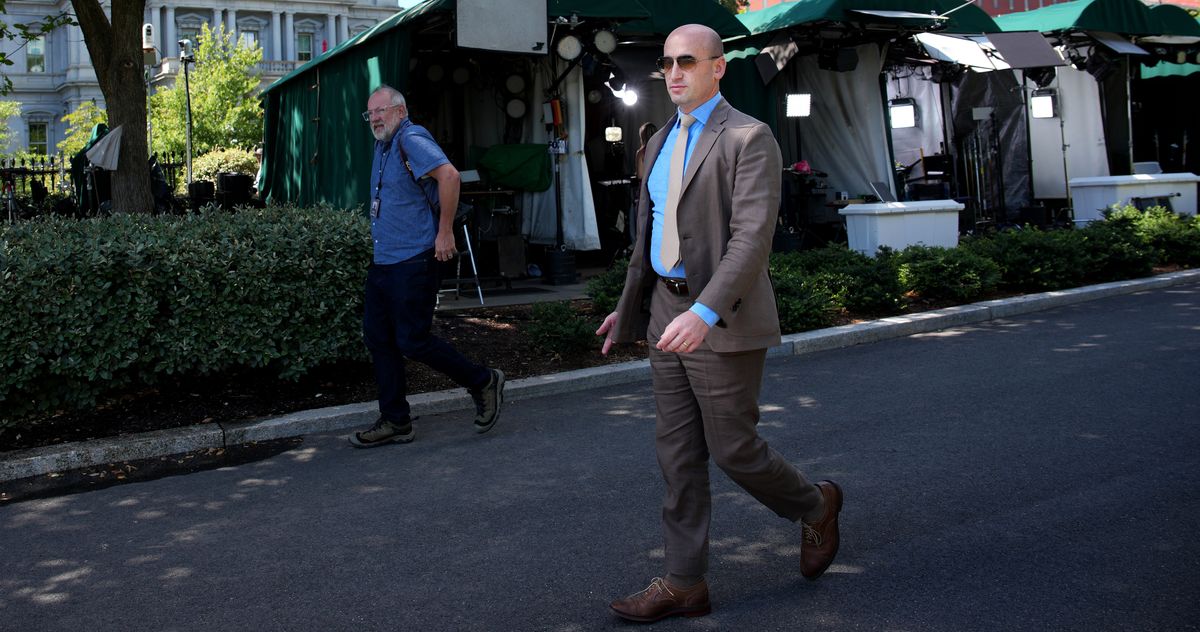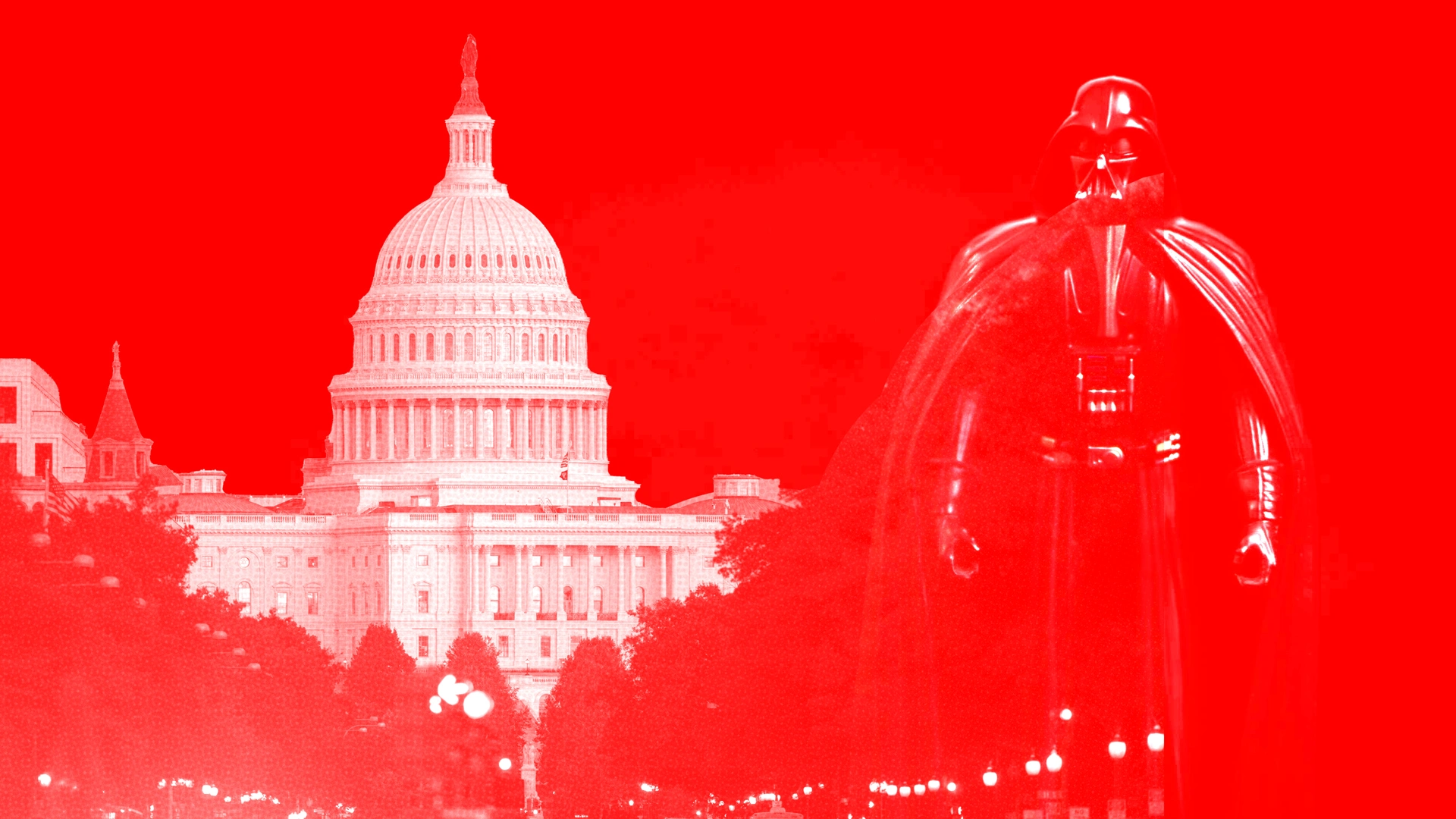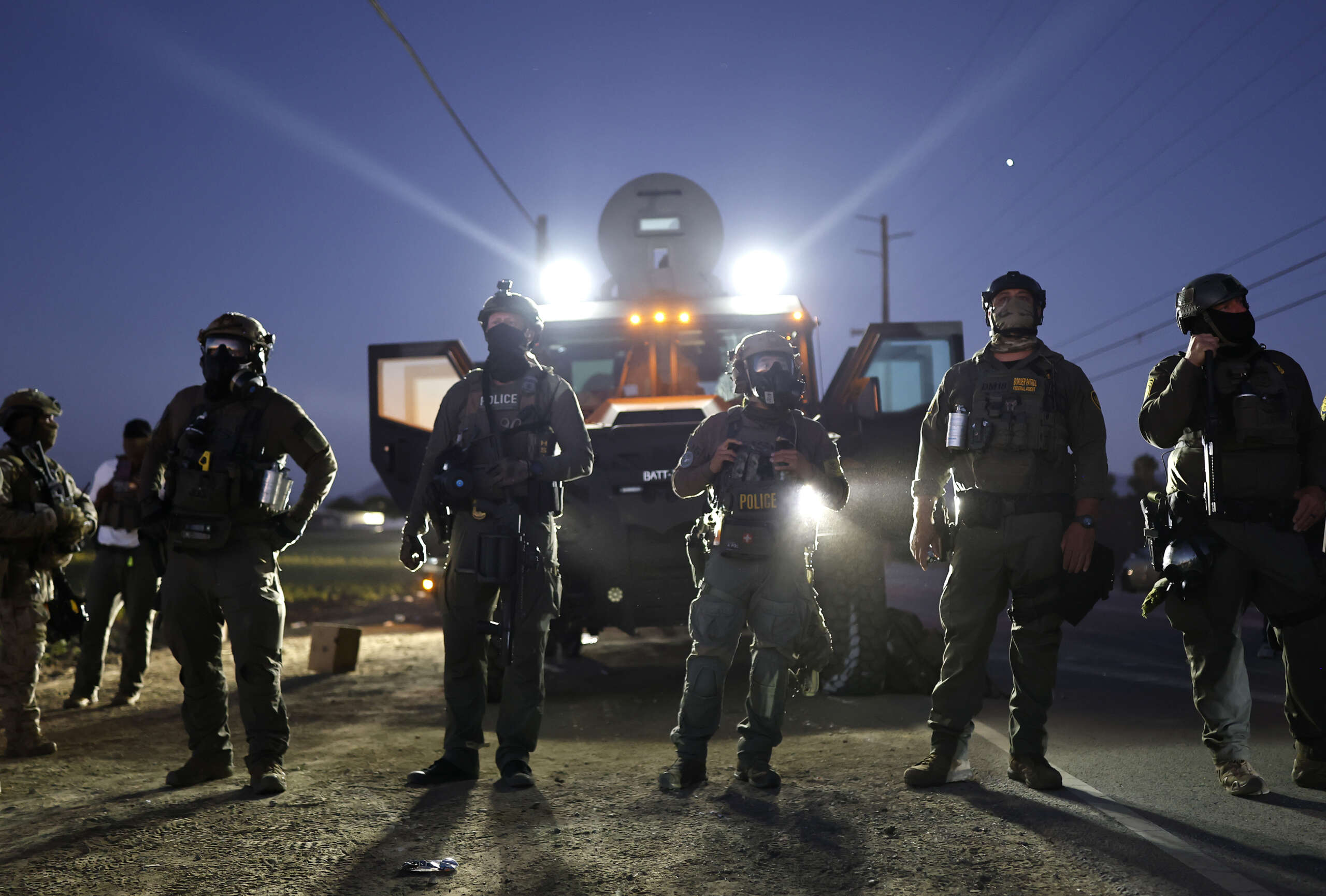#Fourth Amendment
#Fourth Amendment
[ follow ]
#fourth-amendment #immigration-enforcement #racial-profiling #ice #supreme-court #administrative-warrants
fromwww.aljazeera.com
1 week agoMinneapolis businesses close doors for economic blackout protesting ICE
More than 700 small businesses, faith organisations, educators walked off the job to protest ICE raids throughout the city. Hundreds of businesses are closing their doors in Minneapolis, Minnesota, in the midwestern United States, as anti-ICE protesters continue to call for the federal agency to leave the city as part of a large-scale economic protest that has been named The Day of Truth and Freedom.
US politics
fromPoynter
2 weeks agoThis moment will be defined by what we choose to record - Poynter
When unmarked, masked federal agents grabbed an international student and forced her into an SUV on a public street in the spring of 2025, the United States entered into a new era of federal policing. At first, it was alarming - a move more commonly associated with authoritarian dictatorships than a democratically elected government with checks and balances. Now that this tactic, and others like it, have become routine, it is no longer enough to react in alarm.
US politics
fromThe Atlantic
3 weeks agoThe Court Case That Is Allowing ICE to Stop Just About Anyone It Wants
In 1996, the Supreme Court decided Whren v. United States, which came about when plainclothes vice officers patrolling in the District of Columbia passed a truck in a "high drug" area and "their suspicions were aroused." They had a hunch that the truck was involved in a drug operation. They chose to wait until it had violated a traffic ordinance (turning without a signal) and then used that violation as an excuse to stop the truck. In the course of searching the truck, they found crack cocaine.
Law
US politics
fromwww.theguardian.com
1 month agoJudge blocks Trump prosecutors from accessing key evidence in Comey case
A judge blocked prosecutors from accessing Daniel Richman’s seized materials, citing likely Fourth Amendment and attorney-client privilege violations, complicating prosecution of James Comey.
fromemptywheel
2 months agoDan Richman Wants His Data Back - emptywheel
There are a number of articles ( Reuters, Politico) describing discussions about reindicting Jim Comey and Letitia James. Neither addresses the issue I lay out here - namely, that the ultimate goal of the Comey prosecution, at least, is to support the Grand Conspiracy in Florida, perhaps by obtaining at least probable cause that Comey lied to cover up the import of (Grand Conspiracy nutballs claim to believe) the "Clinton Plan" CIOL and Comey's decision to release a memo documenting Trump's corruption.
US politics
fromwww.npr.org
2 months agoThis civics competition lets high school students have their day in court
"We contend that the search of Carmen Bundy's phone," Khedr says, "was a clear violation of her Fourth Amendment right to be free from unreasonable searches and seizures." And so begins a day-long trial in New York City. Though in this case, the prosecutor is a high school senior from Staten Island. It's all part of an annual moot-court competition, and students from more than 30 city high schools have been researching and preparing their cases for weeks.
New York City
fromemptywheel
2 months agoPam Bondi Replaces Her Embarrassing Reading Comprehension Failure with a 4A Violation - emptywheel
When Judge Cameron Currie surprised Pam Bondi's Counselor, Henry Whitaker, on Thursday with a question about whether DOJ believes Aileen Cannon wrongly dismissed Trump's stolen documents case, Whitaker claimed what distinguished Jack Smith from Lindsey Halligan is that Halligan is closely supervised. I do think that mostly what was driving Judge Cannon's decision in that case was sort of the unique and broad authority that the special counsel possessed sort of free of supervision, which, of course, is an element that we do not have here.
US politics
fromemptywheel
2 months agoKash Patel's Plot Against Jim Comey Thickens! - emptywheel
Even assuming the defendant could prove that the government violated the Fourth Amendment or attorney-client privilege in its grand jury presentation (and to be clear, he cannot), the remedy would be to suppress that evidence at trial-not to dismiss the indictment. So, the defendant has not shown that "a ground may exist to dismiss the indictment because of a matter that occurred before the grand jury." Fed. R. Crim. P. 6(e)(3)(E)(ii). He is not entitled to access grand jury material.
Law
fromESPN.com
2 months agoFederal lawsuit by Iowa college athletes dismissed
In April 2024, current and former athletes from the University of Iowa, Iowa State and Ellsworth Community College filed the lawsuit, alleging that state criminal investigators violated their constitutional rights by using geolocation software, without warrants, to track activity on their cellphones from inside the schools' athletic facilities. The investigation resulted in some criminal charges but more so the loss of NCAA eligibility, which ended the college careers of several athletes.
Law
fromBloomberglaw
3 months agoNYC Section 8 Landlord Requirements Get Friendly Second Circuit
Second Circuit judges were perplexed by a Manhattan landlord's request that the court declare unconstitutional a New York City law requiring landlords who participate in Section 8 housing to allow searches of their premises. The plaintiff-the owner of a 48-unit residential apartment building-is appealing the dismissal of his case asserting the law violates his Fourth Amendment right to be free from unreasonable search and seizure.
Law
from48 hills
4 months agoNew state 'loitering' law could lead to racial profiling and deportations - 48 hills
In January, AB 379 will take effect, reinstating a repealed law that criminalizes "loitering with intent to purchase commercial sex." Governor Gavin Newsom, signed the bill, saying it will help protect victims of human trafficking. However, critics are its unclear language will enable law enforcement to detain individuals based on the subjective suspicion of having an "intent to purchase a commercial sex act."
Law
fromwww.theguardian.com
4 months agoUS border patrol collected DNA from thousands of US citizens for years, data shows
In March 2021, a 25-year-old US citizen was traveling through Chicago's Midway airport when they were stopped by US border patrol agents. Though charged with no crime, the 25-year-old was subjected to a cheek swab to collect their DNA, which was sent to the FBI, according to a new report. The unnamed citizen was later admitted into the country. Their DNA was added to the FBI's database of genetic material despite the lack of criminal charges.
Privacy professionals
NYC politics
fromNew York Amsterdam News
7 months agoStop + frisk monitor: Secretive NYPD unit overwhelmingly stops Black and Brown people
The Community Response Team faced criticism for high rates of unconstitutional stops and racial disparities during encounters, according to an independent monitor's report.
fromBrooklyn Eagle
9 months agoRetired Supreme Court justice and author Barry Kamins speaks on 'Search and Seizure'
Traditionally, drunk driving cases have been about an officer arresting someone when they pull up and smell alcohol or see bloodshot eyes. But some judges are saying in addition to that, you need evidence that the person is driving erratically or unlawfully.
Law
Black Lives Matter
fromwww.mercurynews.com
9 months agoJudge restricts Border Patrol in California: You just can't walk up to people with brown skin'
Federal court limits Border Patrol's authority to conduct warrantless immigration stops in California.
Judge's ruling reinforces Fourth Amendment rights against arbitrary detentions.
San Francisco Giants
fromwww.mercurynews.com
9 months agoCalifornia judge blocks Trump administration anti-money laundering affecting border businesses
A federal judge has blocked a Trump administration rule aimed at combating money laundering that threatened small businesses due to excessive reporting requirements.
Privacy professionals
fromwww.mercurynews.com
9 months agoA new Trump administration rule aims to combat money laundering. A California woman says it will put her out of business.
New reporting requirement from the Trump administration could severely impact small money services businesses by overwhelming them with burdensome regulations.
[ Load more ]



































